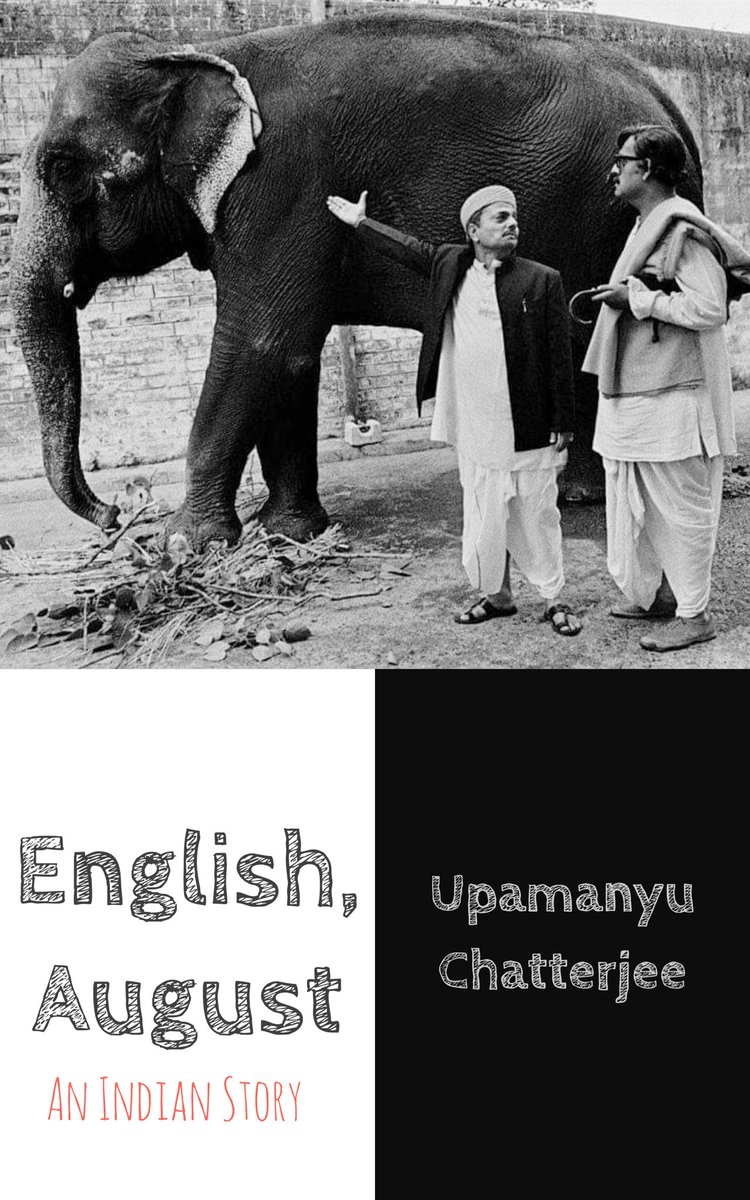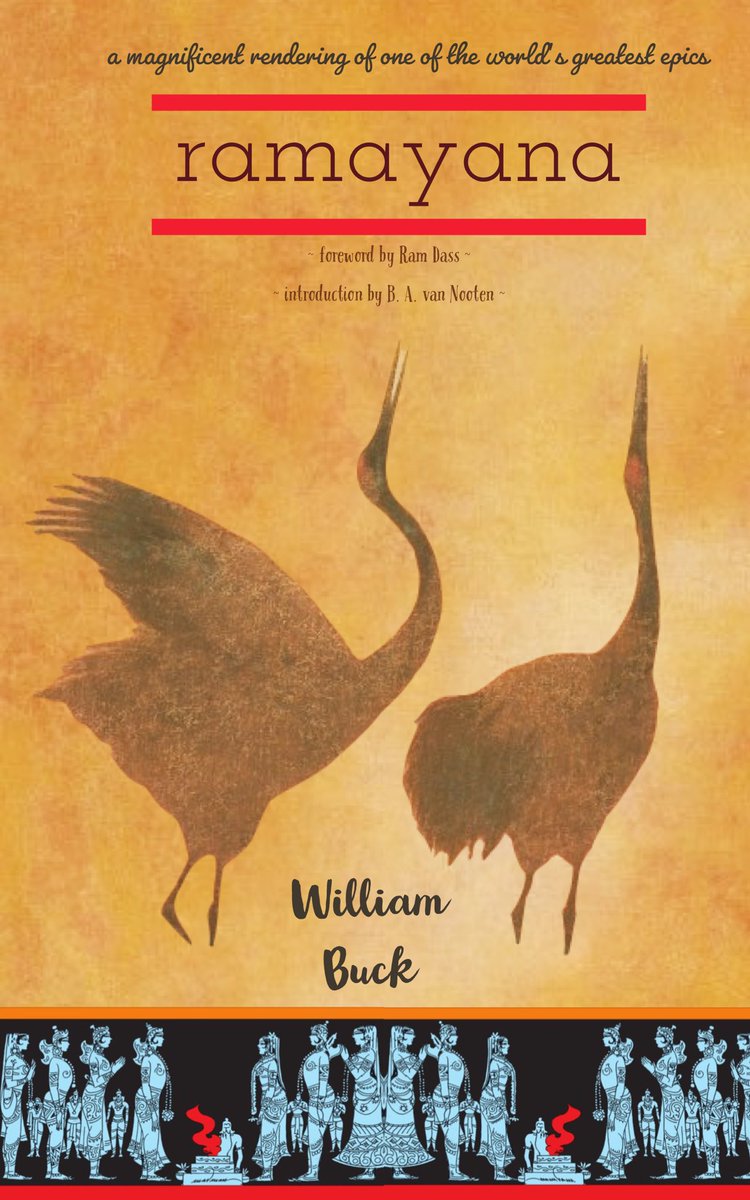over the last few days, I’ve been thinking about covers of books that i have enjoyed/admire/learnt from. and so i asked, what do i take from the text, how did it make me see the world, and how can it be represented? so, i did some experiments.
a running thread. hopefully fun.
a running thread. hopefully fun.
1. English, August by Upamanyu Chatterjee
the sly ennui that Agastya Sen experiences is overwhelming, but it slowly it seemed tome that beneath all that urban Indian cynicism is a slow recognition that India is a strange, strange place.
[photo from a Satyajit Ray film]
the sly ennui that Agastya Sen experiences is overwhelming, but it slowly it seemed tome that beneath all that urban Indian cynicism is a slow recognition that India is a strange, strange place.
[photo from a Satyajit Ray film]

2. The Legends of Khasak | O. V. Vijayan
The master wrote a fable abt the borderlands of Kerala-TN; but inside it are tightly wound historic, erotic, & folk anxieties, coiled up as legends, that somehow stay in place, till one day they stop playing ball w/ history.
[my photo]
The master wrote a fable abt the borderlands of Kerala-TN; but inside it are tightly wound historic, erotic, & folk anxieties, coiled up as legends, that somehow stay in place, till one day they stop playing ball w/ history.
[my photo]

3. The Bhagavad Gita by Gandhi
This was a magazine cover for an old LRB, that I liked. I remembered this image when I read Gandhi’s interpretation of The Bhagavad Gita: on riding the tiger of anti-colonial struggles while being committed to a belief in a theophanic worldview.
This was a magazine cover for an old LRB, that I liked. I remembered this image when I read Gandhi’s interpretation of The Bhagavad Gita: on riding the tiger of anti-colonial struggles while being committed to a belief in a theophanic worldview.

4. Speaking of Siva by A.K. Ramanujan
I have often returned to admire the skill w/ which AKR imbued the translations of these Virasaiva verses w/ economy & beauty. They appear to us as a devotee’s efforts to sketch the shape of a God, who is intimate & yet is often too distant.
I have often returned to admire the skill w/ which AKR imbued the translations of these Virasaiva verses w/ economy & beauty. They appear to us as a devotee’s efforts to sketch the shape of a God, who is intimate & yet is often too distant.

5. Tamas by Bhisham Sahni
I saw a novel by Louis de Bernières on Greek-Turk partitions & wondered, given cataclysmic nature of partition of India, why are there so few novels in Indian English writing on it. I thought of this vivid transcreated novel.
Sketch: Besik Arbolishvili
I saw a novel by Louis de Bernières on Greek-Turk partitions & wondered, given cataclysmic nature of partition of India, why are there so few novels in Indian English writing on it. I thought of this vivid transcreated novel.
Sketch: Besik Arbolishvili

6. Life of Pi
I can’t remember when I first read it; but recently during the pandemic, when i saw news of animals wandering the streets while humans were sequestered in confined spaces, I remembered this book and ‘Richard Parker’ in it...
I can’t remember when I first read it; but recently during the pandemic, when i saw news of animals wandering the streets while humans were sequestered in confined spaces, I remembered this book and ‘Richard Parker’ in it...

7. Walden by Thoreau
I own some land deep inside in northern Kerala, which is uncultivated & is home to squirrels & cranes, snakes & kingfishers. Mist descends on it every dawn. Nearby is a stream which gurgles down frm the hills to join a river that flows into the Arabian Sea.
I own some land deep inside in northern Kerala, which is uncultivated & is home to squirrels & cranes, snakes & kingfishers. Mist descends on it every dawn. Nearby is a stream which gurgles down frm the hills to join a river that flows into the Arabian Sea.

8. Reading Lolita in Tehran by Azar Nafisi
A glimpse into worlds I was 3x removed from: as a man, as a citizen of liberal democracies, & as one w/ freedom to read. Useful reminder of how political authoritarianism poisons everything.
I used a sketch by the great Namboodiri.
A glimpse into worlds I was 3x removed from: as a man, as a citizen of liberal democracies, & as one w/ freedom to read. Useful reminder of how political authoritarianism poisons everything.
I used a sketch by the great Namboodiri.

9. 9. The Invisible Man by H G Wells
I loved this novel in highschool along w/ 20,000 Leagues & TimeMachine. But, I never thought abt HG Wells then; but now, the more I read abt HGW, the more extraordinary he seems. Almost prophetic abt WW2
I used a cover photo by Anja Buhler
I loved this novel in highschool along w/ 20,000 Leagues & TimeMachine. But, I never thought abt HG Wells then; but now, the more I read abt HGW, the more extraordinary he seems. Almost prophetic abt WW2
I used a cover photo by Anja Buhler

10. Tomáš loves his wife Tereza but he also loves sleeping w/ Sabina — for he has come face to face w/ the reality of humans as mere particulates of energy & matter stuck in a cycle of eternal return. Between tea & pastry, where can happiness lie?
I used a photo by Martin Parr.
I used a photo by Martin Parr.

11. “An old fisherman heard all this and shook his head. “This is what happens to those who don’t get married. All they want to do is save the world, by hook or by crook.””
It is only frm great devotion that great acts of reimagining is possible. This, I learnt frm Kazantzakis.
It is only frm great devotion that great acts of reimagining is possible. This, I learnt frm Kazantzakis.

12.
Nallaswami Pillai, ‘Sivajnanabodham’
“Like heat latent in firewood, he fills all our bodies; our Father dances moving all souls into action.”
Meister Eckhart, ‘The Angel’s Greeting’
“Just as fire infuses the essences & clearness into dry wood, so has God done with man.”
Nallaswami Pillai, ‘Sivajnanabodham’
“Like heat latent in firewood, he fills all our bodies; our Father dances moving all souls into action.”
Meister Eckhart, ‘The Angel’s Greeting’
“Just as fire infuses the essences & clearness into dry wood, so has God done with man.”

13. A book that I return to every so often — claims & propositions that I thought I understood w/ clarity, thoughts that stood on firm grounds previously, I slowly discover has shifted, or now unsettles.
“Have the patience and forbearance to stay with the open question.”
“Have the patience and forbearance to stay with the open question.”

14. “Marianne’s abilities were, in many respects, quite equal to Elinor’s. She was sensible and clever; but eager in everything: her sorrows, her joys, could have no moderation. She was generous, amiable, interesting: she was everything but prudent.” 

15. “..he finishd the wonderful Mahabharata in the evening, & the next morning Saunaka asked, "Lotus-eyed Sauti, who was that monkey Hanuman who met Bhima in the Hills. What’s that story of Rama, which keeps Hanuman alive so long as it’s told by men on Earth?"
[sketch: Madanan]
[sketch: Madanan]

16. “Was it not a comedy, a strange and stupid matter, this repetition, this running around in a fateful circle?
The river laughed.”
[photos of the Great Buddha in Konan city, Aichi Prefecture; seen from the Hotei Station on the Inuyama Line; original photographer unknown]
The river laughed.”
[photos of the Great Buddha in Konan city, Aichi Prefecture; seen from the Hotei Station on the Inuyama Line; original photographer unknown]

17.
‘Then he asked, “Have you heard of the janissaries?”
“No,” I said.
“They were Christian boys,” he explained, “captured by the Ottomans & trained to be soldiers in a Muslim army...
He tipped the ash of his cigarette onto a plate. “How old were you when you went to America?”’
‘Then he asked, “Have you heard of the janissaries?”
“No,” I said.
“They were Christian boys,” he explained, “captured by the Ottomans & trained to be soldiers in a Muslim army...
He tipped the ash of his cigarette onto a plate. “How old were you when you went to America?”’

18. ‘May in Ayemenem is a hot, brooding month. The days are long and humid. The river shrinks and black cows gorge on bright mangoes in still, dustgreen trees. Red bananas ripen. Jackfruits burst.’ 

19. “The heaviness in his head and chest reminded him of the possibility of his own suffering & death. At that moment he wanted for himself neither Moscow, nor victory, nor glory. (What more glory did he need?) The only thing he wished for now was rest, tranquility, & freedom.” 

20. “We die containing a richness of lovers & tribes, tastes we have swallowed, bodies we’ve plunged into & swum up as if rivers of wisdom, characters we’ve climbed into as if trees, fears we’ve hidden in as if caves. I wish for all this to be marked on my body when I am dead.” 

21.
Then he looked at the postmaster.
“Nothing for the colonel?”
The colonel was terrified. The postmaster tossed the bag onto his shoulder, got off the platform, and replied without turning his head:
“No one writes to the colonel.”
Then he looked at the postmaster.
“Nothing for the colonel?”
The colonel was terrified. The postmaster tossed the bag onto his shoulder, got off the platform, and replied without turning his head:
“No one writes to the colonel.”

22. “He remained in this state of empty, peaceful reflection until the clocktower struck the 3rd hour of morning. He watched as everything began to lighten outside. Then his head sank all the way to the floor w/o volition & from his nostrils his last breath faintly streamed.” 

23. “...you can wake a man only if he’s really asleep; no effort that you may make will produce any effect upon him if he is merely pretending sleep. That was the Govt's position. It was anxious only to go through the farce of legal formality. Mine [was] a cry in the wilderness.” 

24. “The technique of a great seducer requires facility & an indifference in passing from one object of affection to another which I could never have; my loves have left me often than I‘ve left them, for I‘ve never been able to understnd how one could have enough of any beloved.” 

26. “I could disappear from the face of the earth, and the world would go on moving without the slightest twinge. Things were tremendously complicated, to be sure, but one thing was clear: no one needed me.” 

27. First Soldier: Here the great chief [Duryodhana speaks],
“But, Bhima, A hero does not strike someone helpless in action....”
Second Soldier: See now, Janárdana has seen Bhimasena being mocked. He slaps his thigh to give some kind of sign.”
[painting by Odd Nerdrum]
“But, Bhima, A hero does not strike someone helpless in action....”
Second Soldier: See now, Janárdana has seen Bhimasena being mocked. He slaps his thigh to give some kind of sign.”
[painting by Odd Nerdrum]

28. “It was as if that great rush of anger had washed me clean, emptied me of hope, and, gazing up at the dark sky spangled with its signs and stars, for the first time, the first, I laid my heart open to the benign indifference of the universe.” 

• • •
Missing some Tweet in this thread? You can try to
force a refresh














